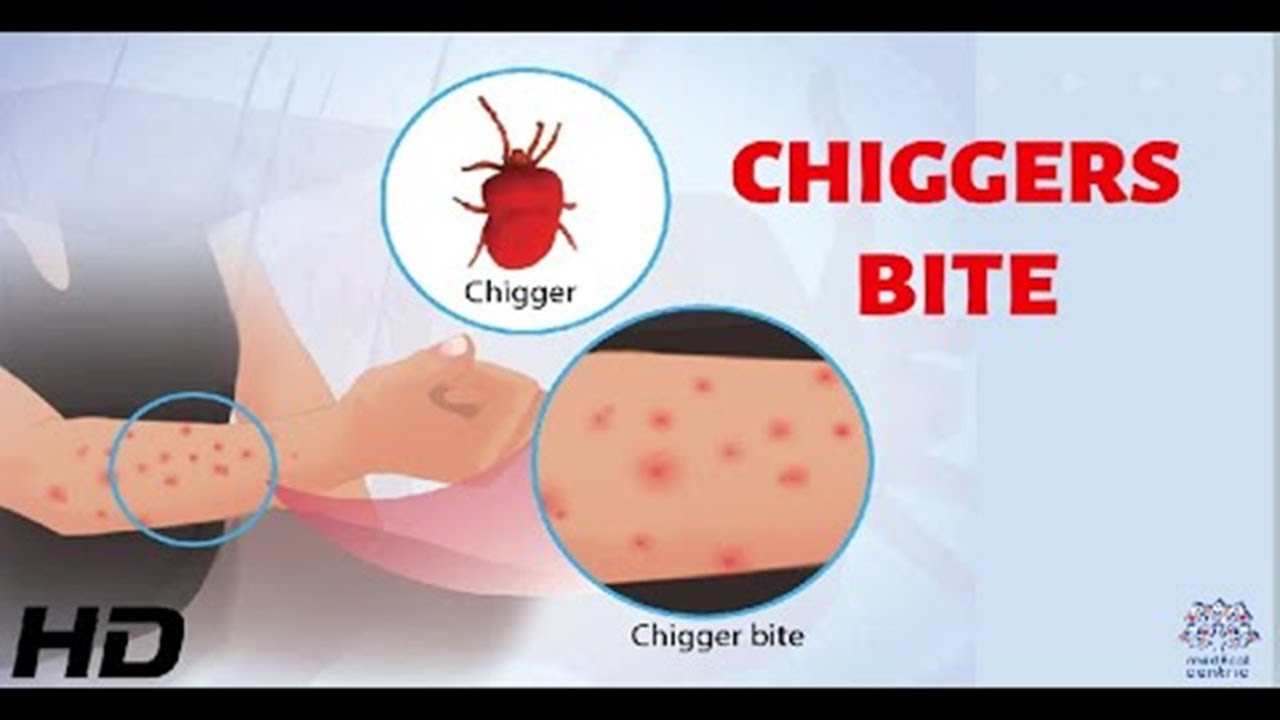Do Chiggers Exist in Rhode Island?
Rhode Island, known for its picturesque coastal landscapes and vibrant communities, is not immune to the presence of chiggers. These tiny arachnids, also known as harvest mites, can be found in various regions across the United States, including Rhode Island.
Understanding Chiggers and Their Habitat
Chiggers are a type of mite belonging to the Trombiculidae family. These minuscule creatures are typically red or orange in color and measure only about 1/150th of an inch in length. Chiggers thrive in warm and humid environments, such as forests, grasslands, and areas with dense vegetation. They are most active during the summer months when temperatures are favorable for their development.
Chigger Infestations: Causes and Symptoms
Chigger infestations occur when these mites attach themselves to humans or animals. Contrary to popular belief, chiggers do not burrow into the skin, but rather inject digestive enzymes that cause irritation. The most common symptoms of chigger bites include intense itching, red welts, and a blister-like appearance. These symptoms typically appear within a few hours after exposure to chiggers.
Identifying Chigger Bites in Rhode Island
Chigger bites are often mistaken for other insect bites due to their similar appearance. However, there are a few key characteristics that can help distinguish chigger bites. They tend to occur in clusters or groups, frequently found in areas where clothing is tight or constricting, such as waistbands or sock lines. The bites may also be accompanied by a small, central red dot, indicating the site of the chigger’s feeding.
Climate and Ecology Suitability for Chiggers
Rhode Island’s climate, characterized by warm summers and moderate humidity, provides suitable conditions for chiggers to thrive. The state’s diverse ecology, including forests, wetlands, and grassy areas, offers a variety of habitats for these mites. However, chigger populations may vary in different regions within the state, depending on local weather patterns and vegetation.
Historical Presence of Chiggers in Rhode Island
While specific data on chigger populations in Rhode Island is limited, the presence of these mites has been documented in neighboring states and regions with similar climates. Given the similarities in ecological conditions, it is reasonable to assume that chiggers have been present in Rhode Island for an extended period, potentially affecting both residents and visitors.
Expert Opinions on Chiggers in the State
Experts in the field of entomology and public health have acknowledged the presence of chiggers in Rhode Island. They emphasize the need for further research and monitoring to better understand the distribution and prevalence of chigger populations within the state. These experts also stress the importance of public awareness and education to minimize the impact of chigger bites.
Are Chiggers a Concern for Rhode Islanders?
While the presence of chiggers in Rhode Island is a reality, the actual number of chigger bites reported in the state remains relatively low. However, individuals who spend a significant amount of time outdoors, particularly in grassy or wooded areas, may be at a higher risk of encountering chiggers. Proper precautions and awareness can help mitigate the chances of chigger bites.
Preventing Chigger Bites in Rhode Island
To avoid chigger bites in Rhode Island, it is important to take preventive measures. Wearing long sleeves, long pants, and closed-toe shoes can provide a physical barrier between chiggers and the skin. Applying insect repellents containing DEET or permethrin to clothing and exposed skin can also act as an effective deterrent. Additionally, showering and changing clothes promptly after outdoor activities can help remove any chiggers that may have attached.
Common Misconceptions About Chiggers
There are several misconceptions surrounding chiggers, often leading to misunderstandings and unnecessary worry. One common myth is that chiggers burrow into the skin, when in fact, they only feed on the skin’s surface. Another misconception is that chiggers are only found in rural or wooded areas, whereas they can also inhabit urban parks, gardens, and even golf courses. Understanding the true nature of chiggers can help dispel these misconceptions and promote accurate information.
The Importance of Chigger Control Measures
Given the potential discomfort and annoyance associated with chigger bites, implementing chigger control measures is crucial. Maintaining well-mowed lawns, removing tall grass and brush, and minimizing vegetation around residential areas can help reduce chigger populations. Regularly washing and drying outdoor clothing at high temperatures can also eliminate any chiggers that may be present. These proactive steps contribute to creating a more chigger-free environment.
Chigger Awareness and Education in Rhode Island
Promoting chigger awareness and education is essential to ensure Rhode Islanders have the knowledge and tools to protect themselves from chigger bites. Public health agencies can play a significant role in disseminating information about chiggers, their habits, and effective prevention methods. By raising awareness and educating the public, Rhode Island can minimize the impact of chigger bites and enhance the well-being of its residents and visitors.





